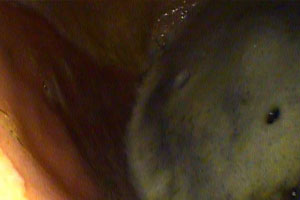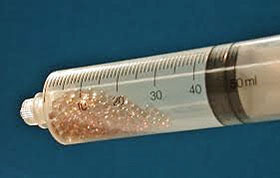Digital Radiography

Homestead Veterinary Hospital has invested in computerized radiology to better serve our patients. Digital radiographs have several benefits including the ability to alter the image once it is obtained to better visualize bone or soft tissue lesions.
With portable radiology units, our veterinarians are able to obtain images of the limb including the stifle, the neck, and the skull.


Digital Ultrasonography

Homestead Veterinary Hospital has three ultrasound units with several probes which allow us to visualize tendons and ligaments, abdominal and thoracic organs and assist in reproductive work.
Digital ultrasound has enabled our veterinarians to obtain even sharper images of limbs and joints to establish more specific diagnoses.


Endoscopy

Endoscopy allows our veterinarians to visualize the upper respiratory tract and lower urinary tract of horses.
The endoscope also allows the doctors to collect Trans-Tracheal Washes for outside laboratory testing.






Equine Dentistry

We understand and value the benefit that high quality dental services can provide for equine athletes and companions.
The foundation of any dental procedure is an oral examination using a full mouth speculum to provide excellent visualization of the entire mouth. Following the examination, a float is generally performed to correct any problems paying careful attention to the balance of the mouth. Our veterinarians use both Power-Floats and traditional hand floats depending on what is appropriate for each individual patient. In addition to examination and routine floating we also perform other procedures including extractions, diastema widening, and pulp capping.


Equine Regenerative Medicine

Pro-Stride Injection- Pro-Stride will reduce pain associated with arthritis and deliver naturally occurring anti-inflammatory proteins. Pro-Stride Injection is capable of slowing cartilage degradation and improving mobility.
It can provide pain relief for up to one year following a single injection. The treatment can be done in the field and processed within 20 minutes.








Fecal Egg Count

More than 150 internal parasites exist that can harm your horse in varying ways. Parasites migrate through the horse's system causing damage to both tissues and vital organs including major blood vessels, intestines, lungs, stomach, and liver.
Because parasites can develop resistance to chemicals designed to stop them, we recommend varying treatment techniques in an effort to outline a deworming regimen personalized to protect your horse.


Laboratory Services

We offer in house blood-work- CBC's, Chemistry Panels, and Fribrogen testing as well as in-house Coggins EIA testing, with a standard turn around time of 12-48 hours but if necessary we have the ability to provide our clients with a 1 hour Stat Coggins testing.
For more information on EIA, Equine Infectious Anemia follow the link.


Lameness Evaluation

Diagnosing lameness is a challenging but rewarding part of equine veterinary practice. Our veterinarians are dedicated to keeping equine athletes performing at their highest level.
Generally, lameness examinations will include observing the horse moving under a variety of conditions, flexion tests, and diagnostic nerve or joint blocks.


Laminitis / Founder Care

Treatment of laminitis has been a major focus of our practice for over 20 years. We pride ourselves on being at the forefront of the prevention, diagnosis, and treatment of laminitis.
Regardless of the initial cause of laminitis we feel that it is important to treat the whole horse, not just the feet.


Mesotherapy

Mesotherapy is a treatment developed in France in 1952, by Dr. M. Pistor, commonly used in human patients around the world and introduced to the equine community by French veterinarian Dr. Jeane Marie Denoix.




Pre-Purchase Exams
The decision to purchase a horse involves both financial and emotional investment. The purpose of a pre-purchase
examination is to provide a thorough evaluation to provide you with as much information as possible to assist you in the purchase process. Pre-purchase examinations are not pass or fail, but rather they provide you with information regarding the horse and recommendations for additional diagnostics if warranted.


Reproductive Services
We routinely examine mares for breeding soundness and cycle management as well as perform artificial insemination with fresh,
cooled, or frozen semen.




- Not nursing: check your mare’s bag. It should be soft and the teats should be facing downwards. If the bag is so distended that the mare’s teats are facing outwards or milk is dripping, call your veterinarian immediately.
- Urine is seen coming from the umbilicus/naval.
- Your foal is posturing to urinate or defecate but nothing is coming out.
- Your foal has a very distended belly, is rolling, or is standing in a corner for long periods of time.
- The foal did not stand to nurse after foaling or is unable to stand due to a conformational defect.
- You can see milk coming from the foal’s nostrils after it nurses.
Shockwave Therapy

Shockwave is a non-invasive safe approach that stimulates healing and blood flow using pressure waves.
Using shockwave treatment our veterinarians have the ability to target specific injury locations which assists to promote collagen deposition in tendons/ligaments or bone deposition on bony structures.


Vaccination Programs

Routine vaccination for diseases is an important factor in preventative medicine.
Many communicable diseases can be prevented by maintaining a solid vaccination program. Our veterinarians will work with you to tailor a program specific to your barn, location, and your horse. Every horse is different and has unique needs. Our goal is to prevent disease before your horse becomes exposed.


Ophthalmology Exams

Coming Soon!



